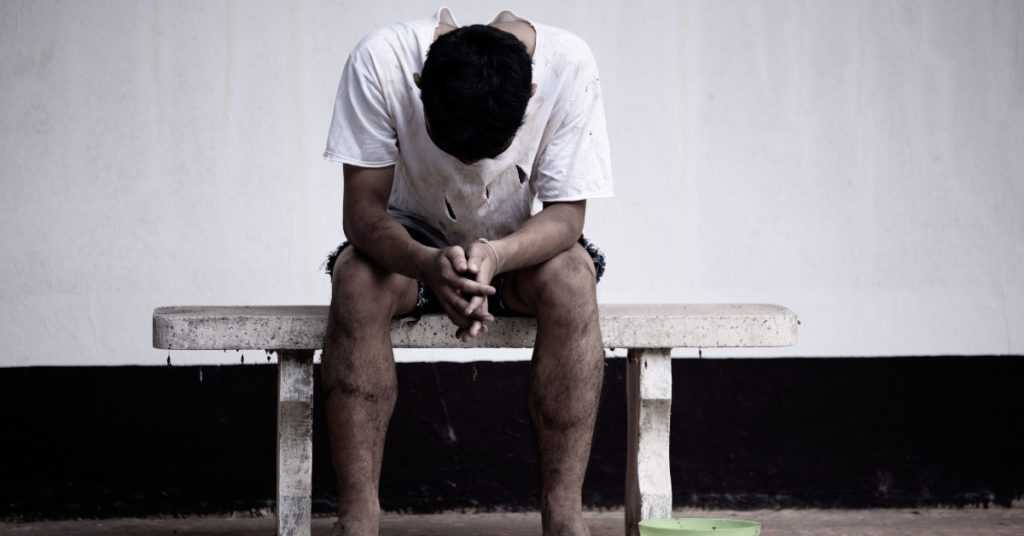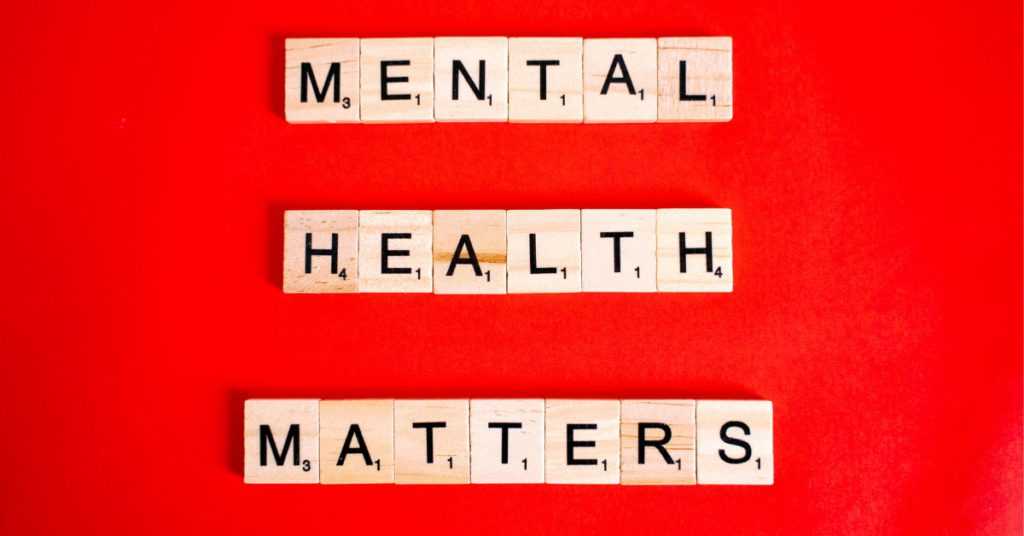Mental health is an inseparable part of public health, and it has a significant impact on countries and has social and economic effects. Mental health is more than just the absence of mental disorders or symptoms. Additionally, it is a resource that promotes overall well-being and productivity. Being a developing country, mental health problems in Pakistan have reached an alarming level in recent decades.
This increase in mental instability can be linked to many factors, including domestic violence, unemployment, terrorism, forced marriages, and other social problems. After evaluating the mental health situation in Pakistan, the International Journal of Emergency Mental Health and Human Resilience published that more than 14 million people in Pakistan suffer from mild to moderate psychological issues. This means around 10 to 16% of the whole population of our country is going through a mental problem, and most of them are women.
Causes of Mental Health Disorders in Pakistan
The Mental Health Ministry of Pakistan has identified the most significant reasons for the drastic increase in the incidence and prevalence of mental disorders. The leading causes include:
Economic Instability
Economic imbalances are associated with a higher prevalence of mental health problems, such as common mental disorders, substance abuse, and, ultimately, suicidal behavior. Based on data gathered by regional directorates of the Ministry of Law, Justice and Human Rights in Karachi, Lahore, Peshawar, and Quetta, it has been reported that 50 percent of suicides in these cities occur because of poverty and economic hardships. Several problems arise due to financial instability, including:
Poverty and Terrorism
According to the results of 2018 statistics, 31.3% of the Pakistani population lives in poverty. It has been estimated that the number of people living in poverty in Pakistan will increase to 40% shortly. By the end of 2020, the population living in poverty will rise from 69 million to 87 million. This is quite alarming when compared to the country’s population of 212.2 million.
Children growing up in extreme poverty have intellectual, social, and emotional deficits that manifest mental problems. A Child’s early socioeconomic hardships may also adversely impact their successful transition into normal adulthood by risking their social, educational, and occupational potential.
Poverty in Pakistan also frequently leads to terrorism across the country, another major factor resulting in mental disorders. The justice system of Pakistan has often been considered incompetent, which is why terrorism causes an increase in insecurity among the people. Many people believe that they will never get justice which often leads to feelings of devastation, eventually leading to mental health issues and suicide.
Unemployment
Unemployment is also amongst the leading causes for the development of psychological disorders. According to researches, there was an exponential increase in suicide rates worldwide, ranging from 20% to 30% during the economic recession period of 2008. Similarly, the current COVID-19 pandemic scenario predicts massive unemployment, leading to an increase in suicidal rates.
Suicide has become more common in youth than in adults in many countries, including Pakistan. Suicide rates among young people are rising due to unemployment, workload and educational pressures, depression, anxiety, and increasing poverty.
Gender Discrimination
While gender discrimination could seem relatively harmless to some, frequent and extreme bias can have long-term effects. A study discovered a link between gender discrimination and poor mental health. It was found that women who reported discrimination based on sex were three times more likely to experience a decline in their mental health over the next four years.
Gender discrimination is a security threat to Pakistan, which has severe implications on the mental well-being of women. Although Pakistani women make more than half of the total population, women are treated inhumanely within their homes by their husbands or dominant males. This discrimination further leads to various abusive acts such as domestic violence, honor killing, acid throwing, forced marriages, etc. Gender discrimination is also deeply embedded in Pakistani society, especially in the education and employment sectors. Due to this unjust treatment of women in different areas of life, mental issues like depression and anxiety are more common in women than men.
When a pregnant woman is afflicted with, trials her child’s mental health is also affected. It has been found the maternal depression is directly linked with the baby’s health. Children born to mothers with depression are 40% more at risk of being underweight and mostly have stunted growth if nutritional requirements are not met in the early years.
Physical illnesses and Disabilities
Mental illnesses are risk factors for both communicable and non-communicable diseases. They can also play a role in both unintentional and intentional harm. At the same time, many health conditions increase the risk of mental disorders, such as obesity, linked to an increase in depression. So, people with diseases and disabilities are more at risk of developing mental health issues.
Stigmas related to Mental Health in Pakistan
Even though Pakistan is becoming a progressive country day by day, there is a considerable proportion of the illiterate population. Due to this severe lack of education, people tend to associate different stigmas with mental health issues. Despite increasing awareness regarding psychological disorders in Pakistan, seeking assistance for psychological disorders may pose a problem.


Myths about Mental Problems
Psychological disorders are often linked to supernatural phenomena such as witchcraft, possession, and black magic.
The absence of adequate healthcare facilities for the treatment of mental disorders in Pakistan is another cause as to why people turn to get spiritual help. Spiritual healers, also known as baba, pir, or Sufi, are well-respected members of the community. They practice at their homes, clinics, shrines, or mosques and usually explain mental illness in possession by an evil spirit or magical influences cast by enemies. So, people believe that mental disorders are contagious and consider people with these illnesses as outcasts.
Mental Health as a Taboo
Moreover, mental illness is often hidden by families to prevent negative stereotyping. Psychotic people are stigmatized as violent. Nearly one-third of Pakistan’s population suffers from mental disorders, and depression is reportedly the cause of 90 percent of suicides in the country. Yet, there is no proper recognition for psychological illnesses, especially in rural areas of Pakistan. Being a country with limited funding available for investment in mental health, it is unclear how or when the current situation will improve. However, the ministry of mental health should try its best to ensure that mental disorders are recognized as illnesses and given equal treatment like other physical diseases.
Common Mental Health Issues in Pakistan
Mental Health Pakistan believes that the incidence and prevalence of mental health problems in Pakistan are skyrocketing. Many psychiatric disorders have been reported, such as depression, substance and alcohol misuse, schizophrenia, bipolar disorder, and post-traumatic stress disorder.
Depression and Anxiety Rates
Pakistan, like other developing countries, has a higher incident rate of depression and anxiety. The overall prevalence of depressive disorders and anxiety disorders is 34%. Sindh has a prevalence of 16%, Punjab of 8%, Baluchistan of 40%, and Khyber-Pakhtunkhwa of 5%. Moreover, according to a survey, Lahore has the highest rate of depression, 53.4%, followed by Quetta at 43.9%, and Karachi at 43.9%.


Symptoms of Mental Health Disorders
Common symptoms of mental disorders include:
- anger, hostility, or aggression
- alcohol or drug abuse
- changes in energy levels
- loss of interest
- anxiety, confusion, or disconnectedness
- erratic behavior
- irritability and mood swings
- perception or thought process disturbances like hallucinations and delusions
- persistent or abrupt mood changes that can interfere with daily life
Role of Social Media in Mental Health Awareness
According to research, social media use is strongly linked to consumers’ mental well-being, especially among women in developing and socially patriarchal regions of the world. Time spent in personal activities on social media platforms provides relief and an escape from the harsh realities of oppressed women’s lives. It is important to note that while this relief is only temporary, it has a positive impact on the overall well-being of social media users.
Many campaigns have been launched in Pakistan in recent years to spread awareness regarding mental health. The International Red Crescent Pakistan has launched a website under the banner of RFL. In addition, to establishing rehabilitation and recovery centers in all four provinces, Azad Jammu and Kashmir, and Gilgit-Baltistan. To prevent suicide attempts, booklets in Urdu will be prepared to raise awareness about mental health. Furthermore, special programs will be developed for schools, colleges, universities, government, and non-governmental organizations as part of the project to raise awareness.


What can be done to Improve Pakistans Mental Health?
It appears that we are still far behind in meeting the standards, and some steps are required to improve the current mental health situation in Pakistan. In terms of solutions, it has been proposed that mental health be integrated into primary health care, provided in general hospitals, and community-based mental health services are developed. Mental health promotion should be done with the help of various sectors like print, electronic and social media.
There is a lack of mental health counselors in hospitals right now. To improve the quality of treatment, it is an urgent need to develop psychiatric faculty in every hospital, where consultant psychiatrist positions should be created. The Mental Health Act should be pursued in true spirit. Media should be used to launch public awareness campaigns addressing mental health issues in both rural and urban areas. Lastly, it is necessary to place an emphasis on behavioral sciences, design an appropriate undergraduate training program following one of the international modules.
FAQs
1. What is mental health?
Mental health includes emotional, social, and psychological well-being. It impacts how we feel, act, think, make decisions, deals with stress, and interact with others. Mental health is essential for people of all ages.
2. When is Mental Health Awareness month?
According to the United Nations, October has been declared as the Mental Health Awareness month. The purpose of this month is to spread awareness regarding mental disorders and their therapy in a compassionate way.
3. How to improve mental health?
Mental health can be improved by staying in touch with your loved ones, sharing your feelings, being hopeful, taking care of your physical health and diet, and visiting a therapist.
4. How has Covid-19 affected mental health?
A WHO survey has found that the isolation, unemployment, and fear caused due to COVID-19 have triggered mental health conditions. Many people may be experiencing increased levels of alcohol and drug abuse and insomnia and anxiety.
5. How to get rid of mental health problems?
Going to a psychiatrist is the best option if you are seeking treatment for a mental health issue. Some other ways are having a healthy lifestyle, support of loved ones, and communicating your feelings.
Book an appointment now to answer all your queries. You can book an appointment with the top Psychiatrist through Marham by calling at Marham helpline: 0311-1222398 or by online booking facility through the website or Marham mobile app.
Can’t Find The App?
Android Users:
https://play.google.com/store/apps/details?id=controllers.marham.marhammed&hl=en
Drop a review for us at Playstore if you’ve had a good experience!
iPhone Users:
https://apps.apple.com/pk/app/marham-find-a-doctor/id1095243102
Stay Home. Stay Safe!

